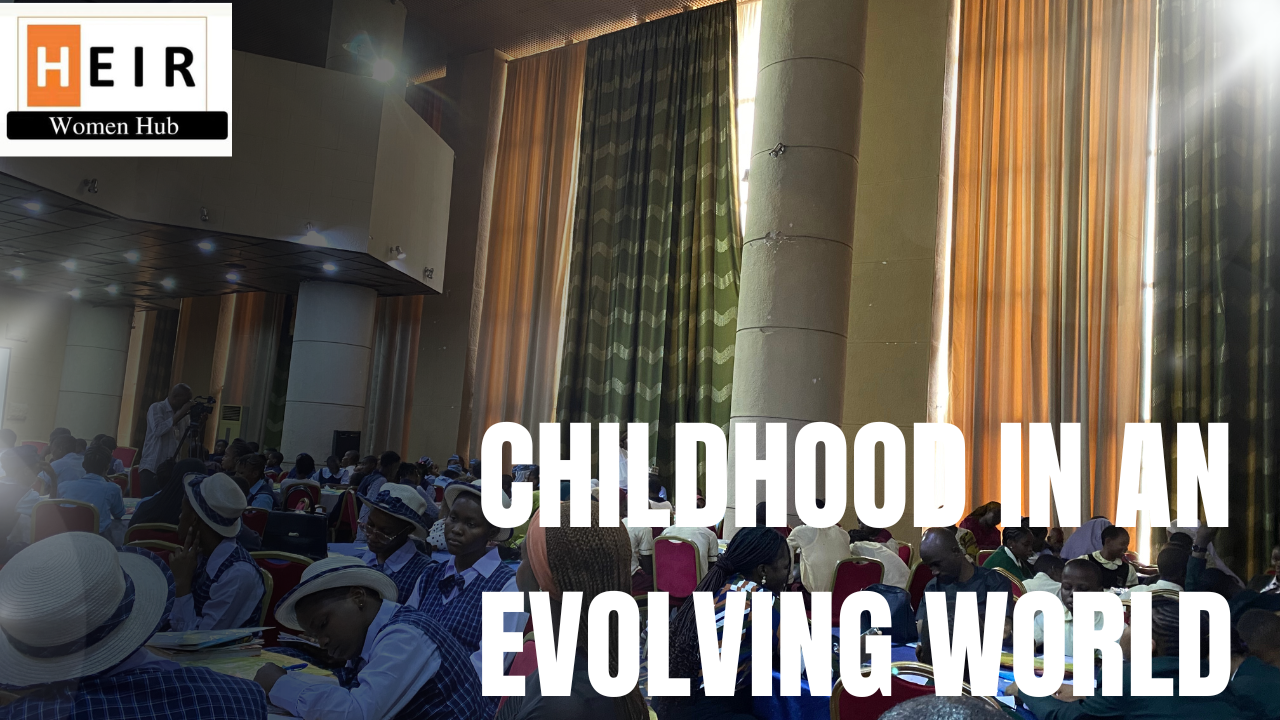
Origins
May 27th is a day dedicated to recognise and celebrate children, this begun in the year 1964 and has been consistent in our dear Nation to date. The primary focus of children’s day I centered on the wellbeing and education of our children While this theme today organised by the National Orientation Agency is themed around quality education and skills development, permit me to address a layer that hold these theme together- and that layer is mental health.
May of every year is also a month set aside to address and advocate for mental wellbeing of every human, children should not be excluded.
Evolving Trends
World Health Organisation data shows that one in seven 10-19 year olds are affected by mental health problems with depression, anxiety and behavioural disorders being the most prevalent. Suicide is the third leading cause of deaths according to the Global Health Estimates in 2019.
Stigma and shame through spaces that address mental health as being just demonic influences still exists through our social norms and sometime our religious platforms. We need to give this the attention required because the trends and styles propagated by social media platforms has exacerbated the need to be “cool” pushing ethics and morals of real self worth and self esteem out the window. Our children are not immune to this, research proves that social media contributes significantly to mental health issues.
The Tick Tok App is banned in many countries because of its influence on social behaviour– children and young adults with some children loosing their lives to tik tok trends gone wrong. Sexual violence through solicitation has increased through these apps having more girls being lured into a world of empty promises through trafficking – parents are having to deal with real life situations and catering to families and work as well as cater to children all in one.
Gender dimensions in childhood
Growing up years is shaped through social norms instilled in children. Identity develops, societal roles and responsibilities are assigned and are reinforced from the family, religious institutions and school communities. Children are “policed” to ensure they do not go against the grain by rewarding acceptability and punishing anything outside the norm. Gender expectations are evolving in the “adult” world and children are witnessing the changing times causing many to dare to take an alternative path and approach to living.
Rethinking alternative realities
Spaces that should re-educate parents, guardians and children such our schools , hospitals and even our religious communities all need to work intersectionaly to address the mental crisis our children are encountering on a daily. Our children require spaces that are real and on time to identify triggers of mental health problems and address them.
As we advocate for quality education and skills development, I encourage us all that while we raise our children today, let us also take into consideration the many distractions that the society has placed around them- some of which we didn’t have to confront while we were their ages. Let’s also rethink how inclusive we are as children living with disabilities are largely excluded from getting quality education or skills development.
At this juncture
I request that children should please show compassion, respect elders and authority because this never goes out of style. Your future will thank you for the hard work, focus, responsibility and commitment you give it.
Let’s all look after ourselves and each other.
Happy Children’s Day.
Añuli Aniebo
References
Carver, Priscilla & Yunger, Jennifer & Perry, David. (2003). Gender Identity and Adjustment in Middle Childhood. Sex Roles. 49. 95-109. 10.1023/A:1024423012063
Nielsen, H.B., Thorne, B. (2014). Children, Gender, and Issues of Well-Being. In: Ben-Arieh, A., Casas, F., Frønes, I., Korbin, J. (eds) Handbook of Child Well-Being. Springer, Dordrecht. https://doi.org/10.1007/978-90-481-9063-8_4
